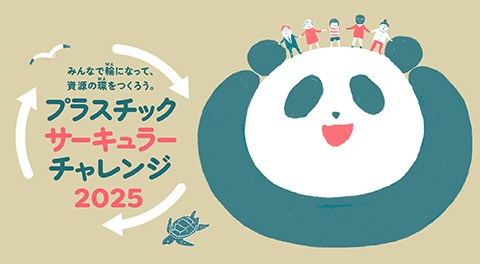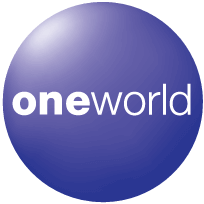Effective Use of Limited Resources
Basic Concept
- To fulfill our responsibility to pass on our precious Earth to the next generation, the JAL Group aims to become a recycling-based society that uses limited resources effectively.
- To promote the effective use of limited resources, we will practice the 4Rs (Refuse, Reduce, Reuse, Recycle) to reduce food waste and eliminate petroleum-derived single-use plastics products in all aspects of our business, which will contribute to reducing greenhouse gas emissions.
- To achieve this, we will work with our customers to reduce food waste and eliminate the use of plastic products at every touchpoint including our cabins, and reduce food waste in supply chains.
Reduction of Plastic Usage
Most of single-use plastics are compounds made from resources derived from petrochemical processes, and since they are not biodegradable and remain in the natural environment unless incinerated, they have been causing serious damage to the marine ecosystem by marine plastic pollution*1. It is also said that the amount of CO2 generated when petrochemical resources are used and produced is approximately 1.89 times the amount of plastic produced*2. However, CO2 is also emitted when waste is incinerated, and hence petrochemical plastics are one of the causes of global climate change*3 and Japan has been reported to generate the second highest amount of disposable plastic waste in the world per capita*4. Also, the concern of the potential adverse effects of chemicals associated with plastics is growing*5.
Therefore, it is essential to review the conventional social system of mass production, mass consumption, and mass disposal, and to transform it into a "Circular Economy" in order to pass on our precious Earth to the next generation.
The JAL Group is addressing this issue by establishing its own "Priorities of Resource Circulation" based on the JAL Group Environmental Policy, and has developed “alternative material solutions[435 KB : PDF]Open link in a new window” that take into account sustainability, biodiversity, recyclability, resource efficiency, and greenhouse gas emissions from recycling, with advice from experts of the World Wide Fund for Nature (WWF) Japan.
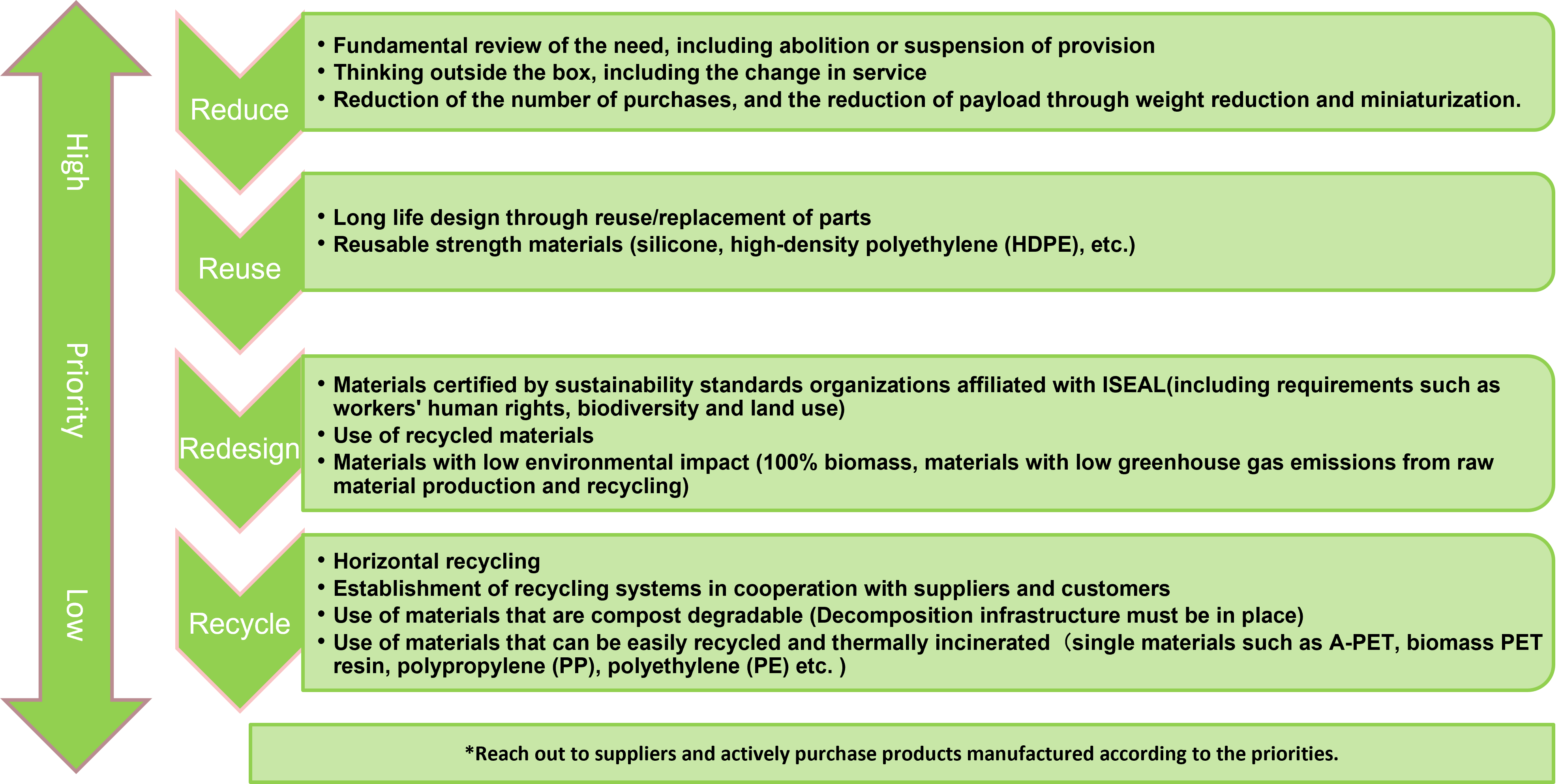
Through the promotion of the 3R (Reduce/Reuse/Recycle) +1 (Redesign), we have set a goal of eliminating all new petroleum-derived single-use plastics in our cabins and lounges as well as changing 100% of our single-use plastics used in airports and cargo to environmentally friendly materials by FY2025.
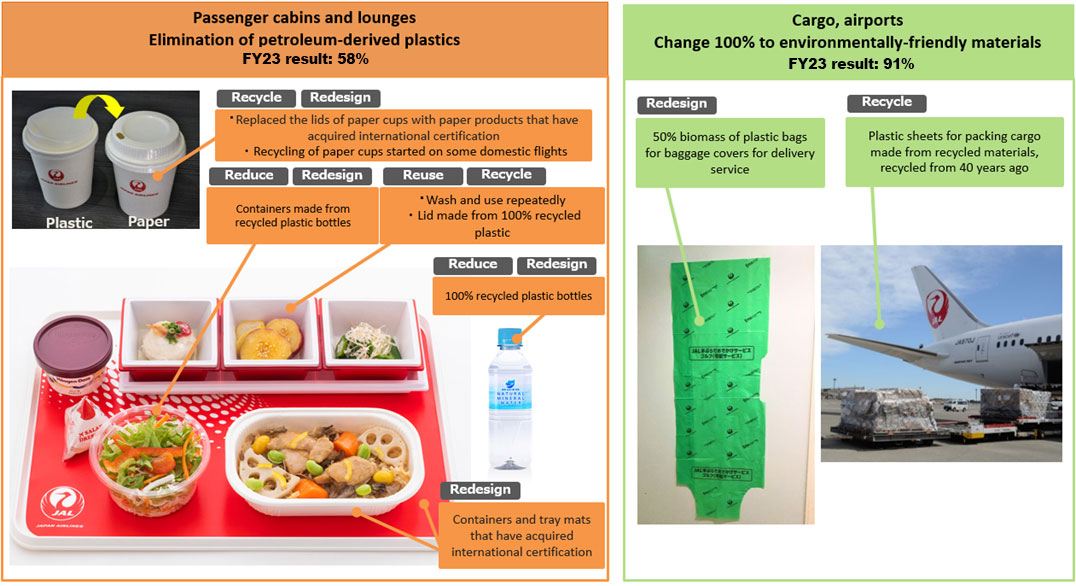
*1 ELLEN MACARTHUR FOUNDATION “The New Plastics Economy: Rethinking the future of plastics”
*2 CIEL(Center for International Environmental Law)“Plastic & Climate: The Hidden Costs of a Plastic Planet(2019)”
*3 World Economy Forum “The New Plastics Economy: Rethinking the future of plastics (2016)”
*4 UNEP(United Nations Environment Programme)“Single-use Plastics: A roadmap for Sustainability(2018)”
*5 UNEP(United Nations Environment Programme)「Chemicals in Plastics - A Technical Report(2023)
Furthermore, JAL prohibits the use of PFAS (per- and polyfluoroalkyl substances) in tableware.
Initiatives in the cabin and lounges
JAL Group has been reducing its single-use plastic service items for cabins and lounges, and achieved a reduction of 57.6% by the end of FY2023 (vs. FY2019 result: 1,967 tonnes). Those in lounges have been eliminated completely in FY2023, and all new petroleum-derived single-use plastics will be eliminated from cabins by FY2025.
Reduce
As for single-use plastics, it is important to first review the necessity of its service items and eliminate unnecessary plastic products in line with actual service conditions. After a detailed survey of the usage conditions of service items on arrived aircraft and lounges, we have changed so that razors, toothbrushes, etc. are provided per request only.
In cases which the use of plastic cannot be eliminated, it is possible to reduce it by changing the form of service by thinking outside the box. For example, in lounges, the use of plastic wrapping material itself has been eliminated by introducing hand towel dispensers. The individual packaging of snacks has also been eliminated, and customers are encouraged to take them with a spoon, hence reducing the amount of plastic.
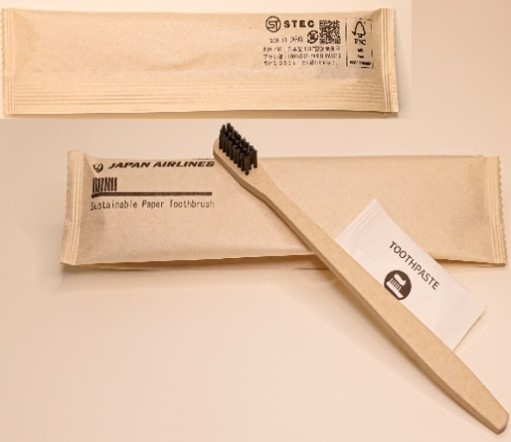
Toothbrush and its packaging provided per request, material also changed to certified paper
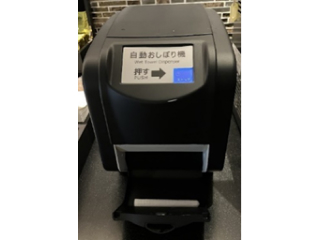
Wet towel dispenser
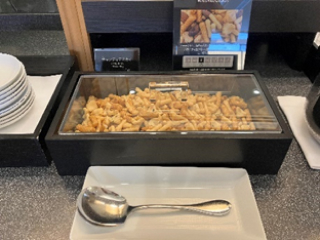
Snacks without individual packaging
Reuse
Effective utilization of resources and their repeated use over a long period of time represents a move away from disposable items. It is extremely important in terms of resource management to review the specification of the plastic products that cannot be reduced, to make them reusable. For example, headrest covers made of single-use plastic (non-woven fabric) have been completely replaced to reusable synthetic leathers.
In addition, from June 2024, we have started to use 100% biomass-derived Green Planet® containers, which have been jointly developed by JALUX and Kaneka, for inflight meal side dish containers served on JAL international flights.
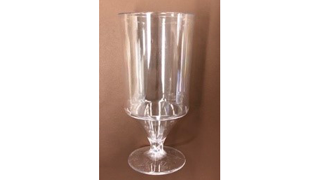
Reinforced and reusable welcome drink cup
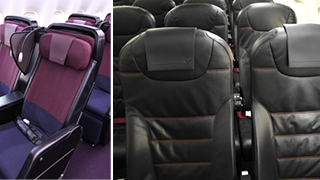
Reusable headrest covers with new materials
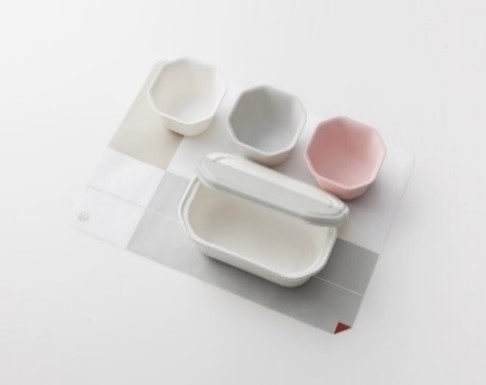
100% plant-based reusable tableware
Redesign
If disposable items must be used due to various constraints such as hygiene, it is necessary not only to change the materials, but also to consider the sustainability of alternative materials. The JAL Group aims to switch to products that do not use any raw materials derived from petrochemical processes, and to materials that make effective use of resources. The JAL Group calls this "Redesign". Based on our "alternative material solutions[435 KB : PDF]Open link in a new window", we are "Redesigning" various items and converting to sustainable materials that do not use new petroleum-derived materials; certified paper, 100% raw materials derived from certified agricultural crops scheduled for disposal, and 100% recycled plastic.
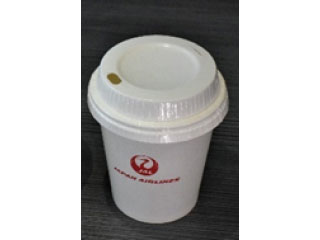
certified paper cups & lids
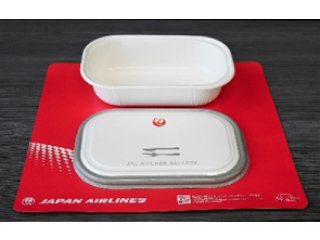
certified paper tableware; containers, lids and tray mat
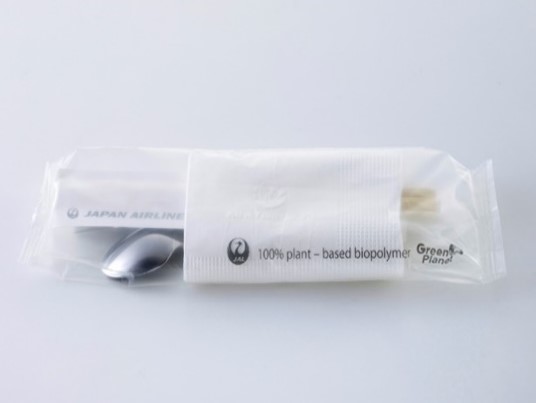
100% plant-based material cutlery packaging
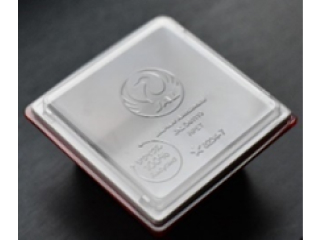
100% recycled plastic bowl lid
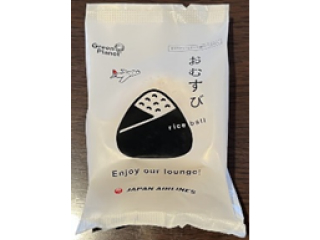
100% plant-based lounge rice ball packaging
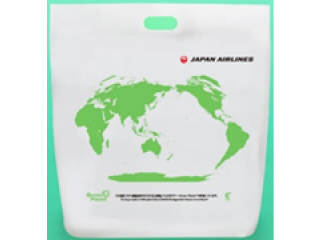
100% plant-based inflight shopping bag
Recycle
Horizontal recycling, a method of recycling a resource into a product of the same use as it was before recycling, is said to be very efficient in terms of resource efficiency because the characteristics of the resource can be reused as is, but to achieve this, it is essential to work with companies that possess superior recycling technology.
When the aircraft arrives, the used plastic bottles are usually incinerated (energy recovery), but as JAL's own initiative, the cabin attendants sort them on board, and with the cooperation of inflight catering companies and companies that have the technology to recycle them, they get recycled into plastic bottles for beverage manufacturers, i.e., "horizontal recycling".
Other initiatives
Even when purchasing and providing commercial products as service items, we actively purchase products from suppliers that meet JAL's “priorities of resource circulation”. With the cooperation of Clear Water Tsunan Co.,Ltd, the JAL Group uses 100% recycled plastic bottles for the mineral water bottles provided with meals. Also, the salad cups served in economy class have been replaced to those made from recycled plastic on all routes.
Initiatives in airports and cargo
Airports
After September 1st, 2021 for international flights (both to and from Japan) and October 1st, 2021 for domestic flights, we are no longer offering plastic bags for check-in baggage to reduce disposable plastic products, which cause global warming and marine pollution.
We ask for your cooperation to take care that your baggage is properly and securely packed for transport.
Also, in order to minimize the usage of petroleum-derived products, which contribute to global warming and marine pollution, the JAL Group stopped giving away non-woven carry-on baggage storage bags on domestic flights and at airports since January 2024. We kindly request customers who wish to protect their baggage to prepare their own baggage covers. We appreciate your cooperation in helping us reduce our environmental impact and create a more sustainable future.
Cargo
When transporting daily essentials such as pharmaceuticals and food products, the JAL Group uses polyethylene sheets to protect the products from wet damage. We are switching these to ones with reduced use of petroleum-derived raw materials. Also, to ensure these plastics are not disposed of as waste, we have supplied them to RIPRO Corporation to manufacture recycled land markers used in land registry investigations and other products.
Equipped with RFID tags, they have been installed in tourist spots to provide information related to the spot to visitors via their smartphones, which is contributing to regional revitalization.
In addition, we have begun recycling them into plastic bags for use at airports (NARITA INTERNATIONAL AIRPORT CORPORATION).
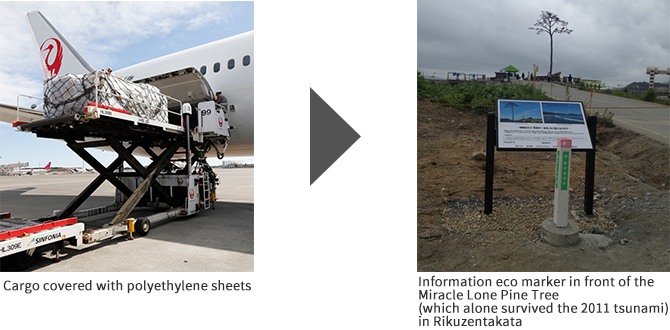
Collaboration with Stakeholders
"Plastic Circular Challenge 2025"
The JAL Group has announced its participation in the "Plastic Circular Challenge 2025Open link in a new window(Japanese Only)" organized by the World Wide Fund for Nature Japan (WWF Japan) in February 2022.
We accelerate our challenge to reduce Single Use Plastics by promoting initiatives related to containers and packaging and Single Use Plastics through dialogue with WWF Japan and other companies.
For the press release, please click here.
Reducing Food Loss & Waste
It is estimated that approximately 40% of the world's food is lost or wasted*1, while greenhouse gas emissions from the entire food system, including production, transportation, processing, distribution, and disposal, account for 21-37% of global emissions*2 , and disposal alone accounts for 8-10% (about five times the emissions from the aviation sector*3), and are responsible for up to 80% of biodiversity loss*4. Food loss & waste is now a serious global issue, and in order to fulfill our responsibility to pass on the precious Earth to the next generation, it is an essential social responsibility to reduce loss & waste in the entire food system.
The JAL Group has been implementing initiatives (the "JAL Food Loss & Waste 4R Program") from the perspective of resource recycling. While monitoring and analyzing the amount of food waste for each food category on monthly basis*5, we are also working on the effective use of food resources by recycling and reusing waste food in the cooking process and supply chain.
JAL's initiatives are pioneering and challenging among airlines worldwide, and we will continue to work toward further reductions.

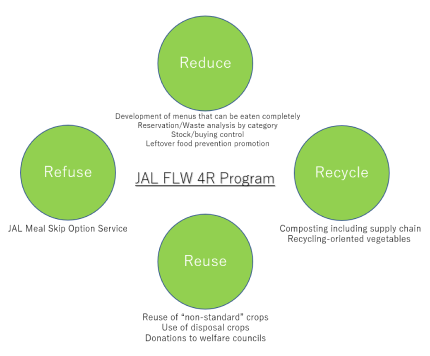
*1 WWF-UK (World Wildlife Fund-UK)“DRIVEN TO WASTE:THE GLOBAL IMPACT OF FOOD LOSS AND WASTE ON FARMS” (2021) p.6
*2 IPCC Special report “Global warming of 1.5℃”
*3 United Nations Environment Programme (UNEP) “Food Waste Index Report 2024“
*4 United Nations ”Statement of Action on the UN Food Systems Summit” (2021)
*5 Our food loss & waste data are compiled based on the "Food Loss & Waste Protocol" proposed by the WRI(World Resources Institute.
Reduce
Reduction is being implemented throughout the entire food life-stage cycle (purchasing - preparation - serving - disposal). JAL Royal Catering (hereinafter referred to as "JRC"), an inflight meal preparation company, analyzes the amount of food waste generated each month by food category, and is working to further reduce food loss by devising cooking methods, more appropriate stock/buying control, and analyzing reservation numbers. The yield rate has steadily improved to 4.4% in FY23.
Due to quarantine rules, it is a global regulation that all leftover food must be incinerated, and we cannot recycle into compost or animal feed. Therefore, as JAL's own initiative, JAL has been asking customers to cooperate in reducing leftover food by stating on menu cards for all inflight routes and in videos introducing inflight meals in the inflight entertainment system that "Reducing food loss and waste also reduces CO2 emissions and keeps the Earth clean".
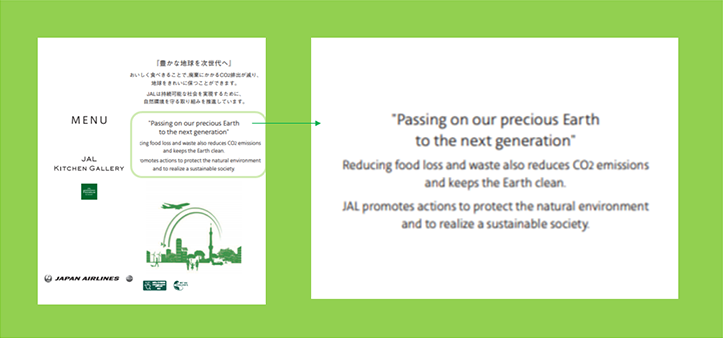
JAL Group's Message to Customers on the menu card
Recycle
Since July 2022, JRC composts all recyclable food loss/residues from the cooking process of inflight meals utilizing a scheme, collaboration with NTT Business Solutions, other food companies, markets, etc*6. All food loss and the cooking residues generated at JRC are composted through primary fermentation using a dedicated fermentation machine in the JRC plant.
In addition, we are recycling all food loss of our supply chain. When JRC purchases processed food ingredients, it sources only from suppliers who compost the residues generated in the cutting process, and it offers inflight meal menus that feature “Recycling-oriented vegetables” produced with the compost as ingredients. Our suppliers recycle meat scraps from the meat cutting process into ground meat, which is then served as hamburgers at restaurants in Okinawa and other locations.
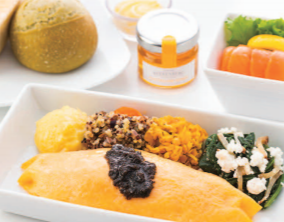
Inflight meal with "recycled" spinach.
Fumiko's SDGs western menu ~
Dish from the” The Future 50 Foods”
*6 Some residues, such as shellfish shells and thick bones of seafood and meat, cannot be composted or turned into animal feed, but all of these residues are subject to thermal incineration and heat recovery (thermal recycling). In addition, the waste oil is recycled to gross quantity soap in recycling companies.
Reuse
JAL is working to reduce food waste by reusing and utilizing crops and foods that are discarded at the production stage, which is the upstream of the entire food system. JAL is working to reduce this harvest loss by reusing and utilizing crops and foods that would otherwise be discarded at the production stage, which is at the very upstream of the entire food system. For example, broccoli stems, despite their high nutritional value and taste comparable to broccoli itself, are discarded during harvest. The lounge offered the "Farmer's Soup" made entirely from broccoli stems from July 2022 to March 2023. The company is addressing the issue of food loss & waste (harvest loss) in the field, such as using asparagus stalks, onion skins, and other ingredients in soups, and coffee bean shells, which are discarded in large quantities and have become an environmental problem, in cocktails, etc.
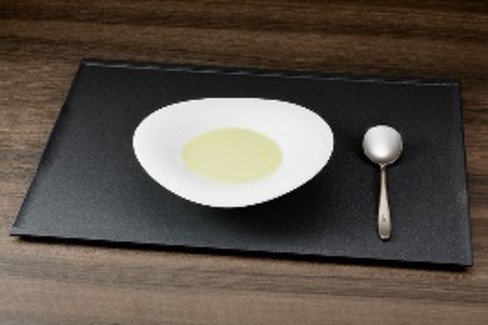
The 6th "Farmer's Soup"
reused "imperfect” soy (edamame)
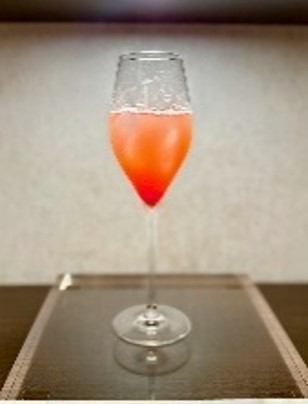
Original cocktail made by reusing
discarded coffee bean shell
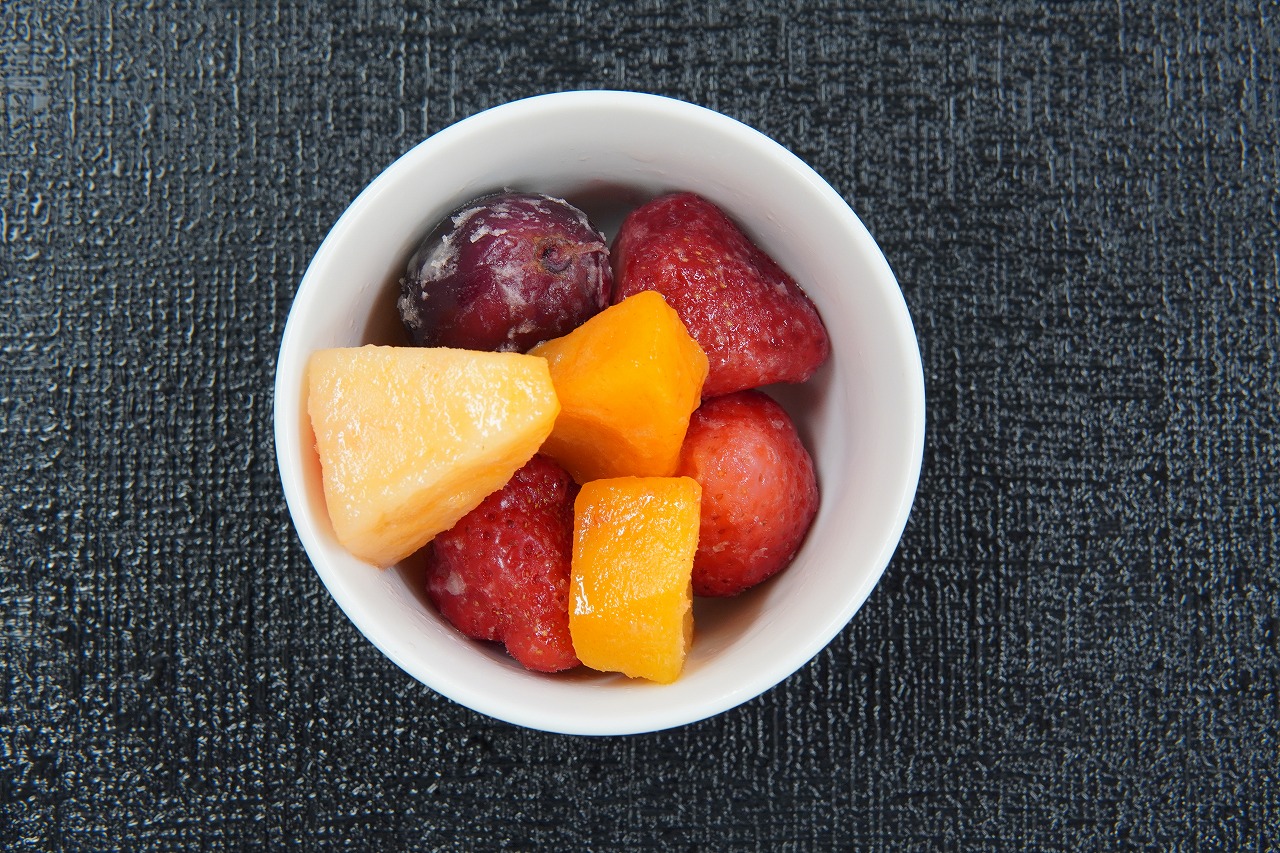
"imperfect" fruits frozen
to extend expiry date
Even though farmers passionately grow their products, if the crops are deformed or have irregularities in shape, they must be discarded because they are deemed "imperfect crops” (out of the shipping standard). We are also very focusing on efforts to reduce these losses(“post harvest loss”). We use "imperfect” sweet potatoes to brew shochu, "imperfect” soybeans to make soup to be served in our lounges, and frozen "imperfect” fruit to be served inflight. Quick freezing helps extend shelf life.
Refuse
-
In our analysis of food waste data, we confirmed that certain customers who prefer to forego their meal or prefer smaller portions, especially on late-night flights. For this reason, we introduced an inflight meal advanced cancellation service ("JAL Meal Skip Option").This service allows customers who prefer to opt-out of the meal service to apply for the service, which in-turn lessens food waste. Japan Airlines is the first airline in the world to introduce this service onto all international routes.
To ensure we give back in connection with the meal-skip service option, Japan Airlines has partnered with "TABLE FOR TWO (TFT) Program," Japan's first social contribution program by the non-profit organization TABLE FOR TWO International. For each inflight meal voluntarily canceled by customers, the airline will donate a certain amount of money to TFT, which will be used for school lunch programs for children in developing countries suffering from hunger. -

Recycling of inflight Waste
Based on the JAL Group's environmental policy, as JAL's unique initiative for resource recycling, cabin attendants collect and sort waste on board to recycle inflight waste by cooperating with recycling companies.
With cooperation of inflight catering companies and recycling companies, we recycle inflight waste such as aluminum cans, PET bottles, newspapers, and inflight magazines. For example, PET bottles which are normally incinerated (Energy recovery) get circulated into recycled PET bottles at beverage manufacturers. Also, the precision of separating the wastes is highly important to promote the resources circulation through recycling. Hence, we periodically check the sorting rate as well as the ratio of which actually gets recycled and improve it as necessary.
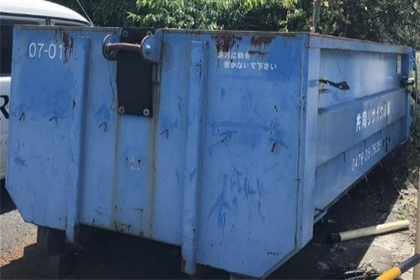
garbage box at JAL Royal Catering
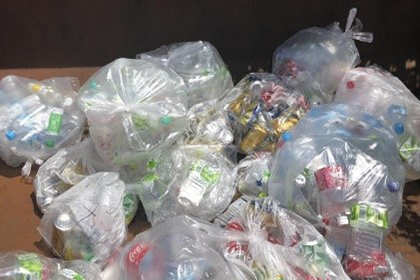
Collected inflight waste:
PET bottles, aluminium cans and glass bottles
The JAL Group has been collecting and recycling paper cups used in domestic inflight services on applicable flights since December 2022 in collaboration with Nippon Paper Group. Until now, collected paper cups were only recycled into cardboard etc., however through a three-way collaboration with paper cup manufacturer Tokan Kogyo Co., Ltd. the horizontal recycling scheme of paper cups into paper cups was established in June 2024. We will continue to accelerate our efforts to promote resource recycling, by means of such as considering the expansion of applicable flights, etc.
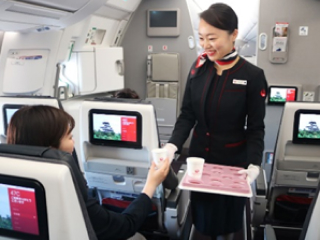
Conservation of Water Resources
To address water resource issues, the JAL Group strives to conserve and reduce the consumption of water, by identifying opportunities to improve water efficiency through assessments of the amount of water consumption. A goal has been set at the aircraft maintenance centers to reduce water consumption by 1% compared to the previous year.
Approximately 240 m³ of purified water used in aircraft maintenance and repaired components is recycled and recirculated per day at the sewage facility. Industrial liquid waste strictly follows laws and regulations, and water quality is maintained thoroughly complying with standards in effluent treatment facilities established together with maintenance facilities. We do not use industrial water. Additionally, in some ground facilities, recycled water is used as well as reducing the amount of daily water usage.
Water supply reduction measures
- Reduced use of cold and hot water by shortening heating and cooling operation time
- Changing the flow rate from hand washing stations and lavatory washing tanks
- Reuse of treated water when cleaning water tanks at washing machine wastewater treatment facilities
- Implementation of water-saving posters and appeals
Other Initiatives
Promoting Paperless
JAL Group promotes paperless by eliminating paper-based manuals for pilots and cabin attendants, as well as promoting remote meetings through work style innovation, and reduces paper waste in business, as well as improving operational efficiency.
In the cargo business, we are contributing to paperless operations and improvement of operational efficiency through digitizing the master air waybill and accompanying documents, which is our transportation contract with customers.
Reduce, reuse and recycle office fixtures
In the cargo business, we are contributing to paperless operations and improvement of operational efficiency through digitizing master air waybills and accompanying documents, which are required for transportation contracts with customers.The JAL Group aims to achieve a full digitization by FY2025.

